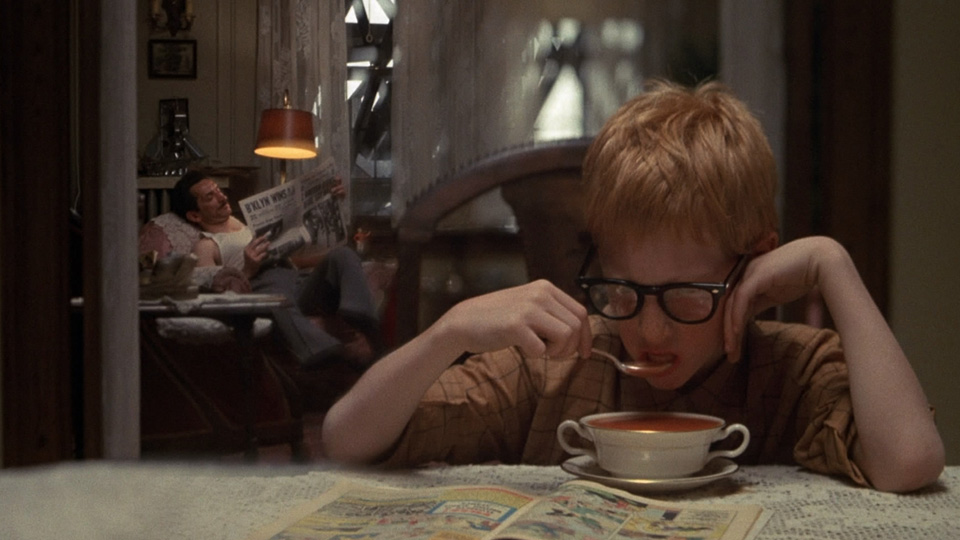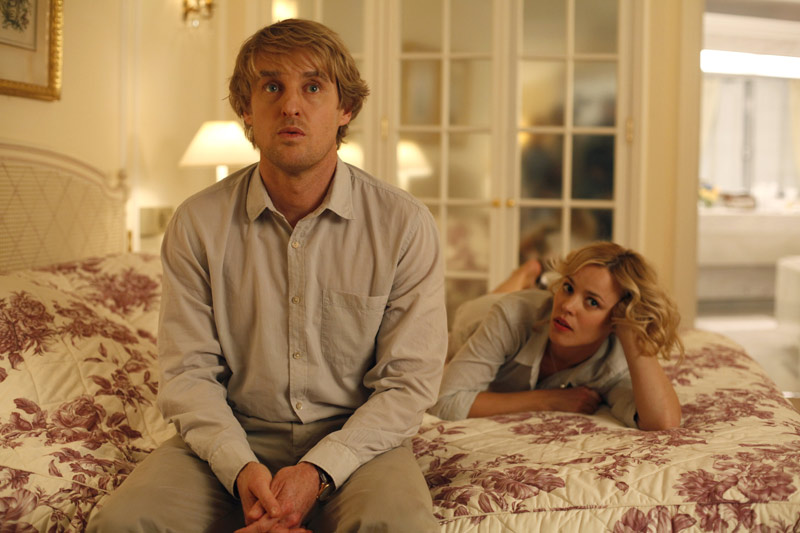Hollywood Ending

Woody Allen has always been nostalgic and a sentimentalist, but only
lately has he seemed completely outdated. In the context of his recent
work, Hollywood Ending is something of a success-a mild
comedy about the movie industry with a few healthy laughs. Allen plays
Val Waxman, a temperemental has-been auteur who gets hired on a
potential comeback picture on the strength of lobbying inside the
studio by a former lover (Téa Leoni) who has since become engaged to a
studio exec. Naturally, many things go wrong.
In terms of movie-about-moviemaking cliches, it's all here-the pathetically untalented starlet, the money-minded producer, the bit player throwing herself at the director, the on-set bickering. The film's mileage is entirely dependent on goodwill for Allen himself, who seems to be taking gentle potshots at his own career. (In that respect, Hollywood Ending is similar to but way less cutting than the angry self-justification of Deconstructing Harry.) Val asks if the film can be shot in black and white, and is gently rebuffed. Val hires a Chinese director of photography, just as Allen himself did (Fei Zhao, who shot Zhang Yimou's Raise the Red Lantern, photographed Allen's Sweet and Lowdown, Small Time Crooks, and The Curse of the Jade Scorpion). And the film Val is making is such a Woody Allen fantasy project--a gangster movie set in New York during the 1940s--that it seems awfully anachronistic in the context of a movie about the machinations of contemporary Hollywood.
Hollywood Ending does return to a certain comfort level that the last few Allen films hadn't quite reached. Setlling into this one feels once again like being in the company of an old friend, albeit one who's grown a little forgetful and doddering with the years. His enduring distaste for punk rock seems irrelevantly conservative, his limp swipe at the video industry is misplaced and gratuitous, and his continued casting of himself against sexual interests 40 years his junior would seem ludicrous if we didn't know exactly how young Allen actually likes 'em. Still, there's something reassuring about watching Woody Allen mistake one of Tiffani-Amber Thiessen's breasts for a throw pillow. If you can't smile at that, perhaps the terrorists have already won.
What's most frustrating is the sense that Hollywood Ending could have been quite a bit better than it actually is. At 114 minutes, it's decisively lacking in the brevity that used to characterize Allen's pictures-even the super-serious, Bergman-inspired stuff. Worse, his timing seems to be off-the filmmaker who was once notorious for cutting his films to the absolute bone now gives us rambling, overlong shots featuring performers who almost seem to be ad libbing their dialogue. I ran to the Internet Movie Database to investigate, and discovered what may be the problem--Susan Morse is gone. Morse, the editor who had worked with Allen since Manhattan in 1979 and who turned into a real soldier by the time of the jazzy montage that characterized Deconstructing Harry, was reportedly a victim of budget-cutting within the ranks. (Since Sweet and Lowdown, his editor has been Alisa Lepselter.)Longtime cinematographer Carlo DiPalma and costume designer Jeffrey Kurland have also vanished from the credit rolls. That's too bad--Allen may be a bona fide auteur, but like all films, his live or die on the strength of the collaboration that brings them to life. Wouldn't it have been something if Allen had made a film about a movie director who goes unexpectedly blind and then churns out a masterpiece anyway, based on the craft and dedication of the crewmembers whom he takes for granted, but who have always watched his back on a film-by-film basis? B-
Posted by on May 5, 2024 5:58 PM
Get Hollywood Ending on Blu-ray from Amazon.com

